Roguebook - Switch Review
"A strong contender in the deck building roguelite genre."
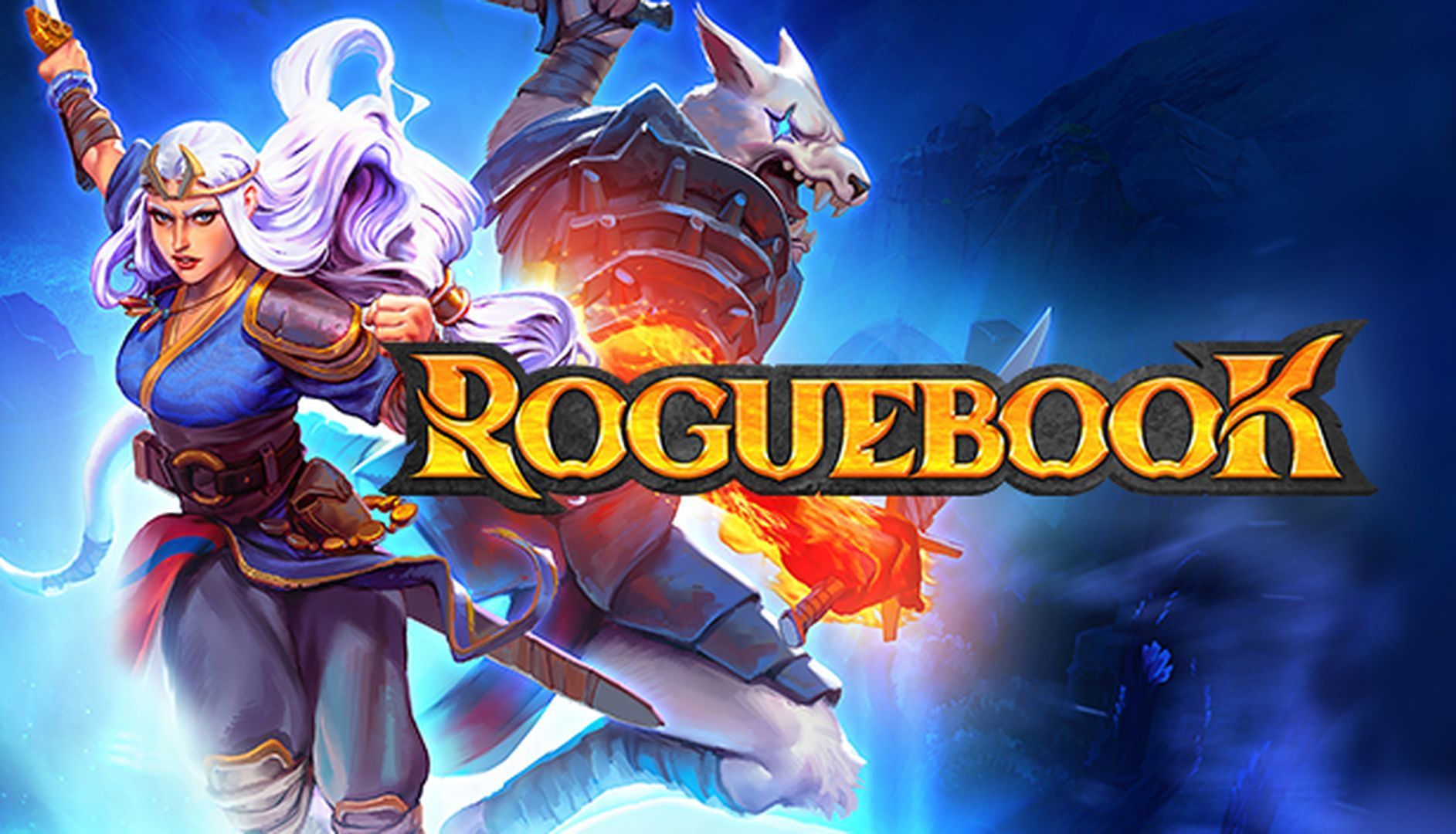
How does a deck building roguelite, that is co-developed with Richard Garfield, the creator behind Magic: The Gathering, sound to you? Because that's what you get with Roguebook, a game with uniquely designed characters which all fit a different role, while offering the player complex strategic decisions throughout the process of a run. Can you escape the Roguebook, or will you succumb to the very pages telling your story?
The Good
The four playable characters all have a visually distinct design and gameplay mechanics which fit different roles in a party. You start every run with two characters which allows for a variety of combinations, especially as each character has a couple of different gameplay paths to follow. Seifer is a prime example of this; you can focus on using his rage mechanics (that increase damage) and card effects, while recovering health from killing enemies; or, you could invest in the Ally Boosting path that Seifer has that combines really well with Sorocco’s ally and, as a result, multiplies any buff by a multiplier of five.
The experience learnt from developing Magic: The Gathering is clear as the strategies of combining characters contains notes about combining the different colours from Magic. As previously mentioned, each character has a unique gameplay style depending on which cards you draft during your run. In addition, they have cross compatibility with each of the other characters, so test out all of the combinations and find a strategy that works best for your own brand of gameplay.
Roguebook’s world encapsulates the feel of a story book, which is where the game actually takes place: a book inside the world of Faeria, another game from the developers Abrakam Entertainment. Each level feels like a pop-up book, alive to the world of the characters and several unique, eye-catching enemy designs.
TL;DR
- Unique playable characters
- Complex strategies
- Visually captivating
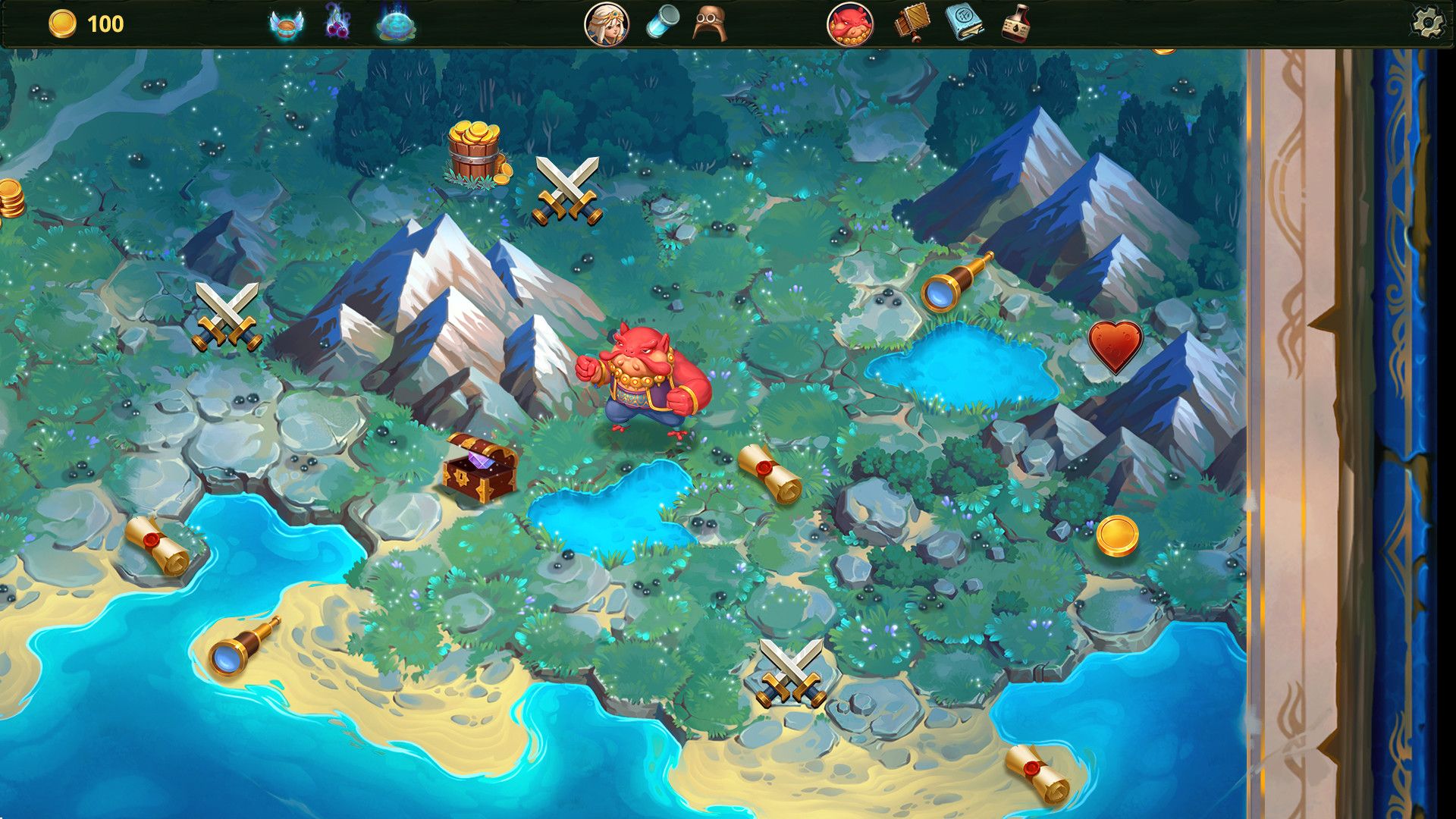
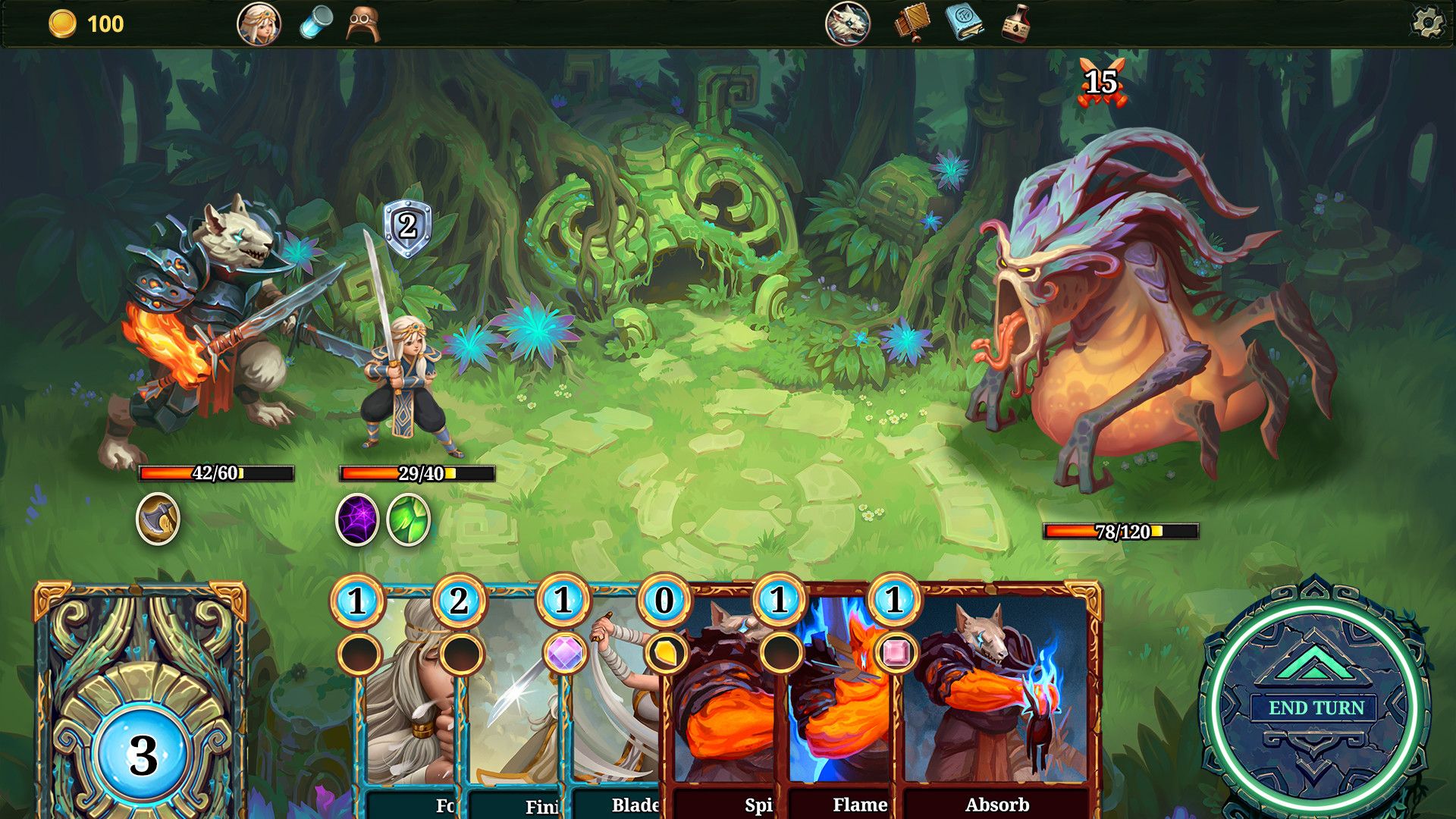
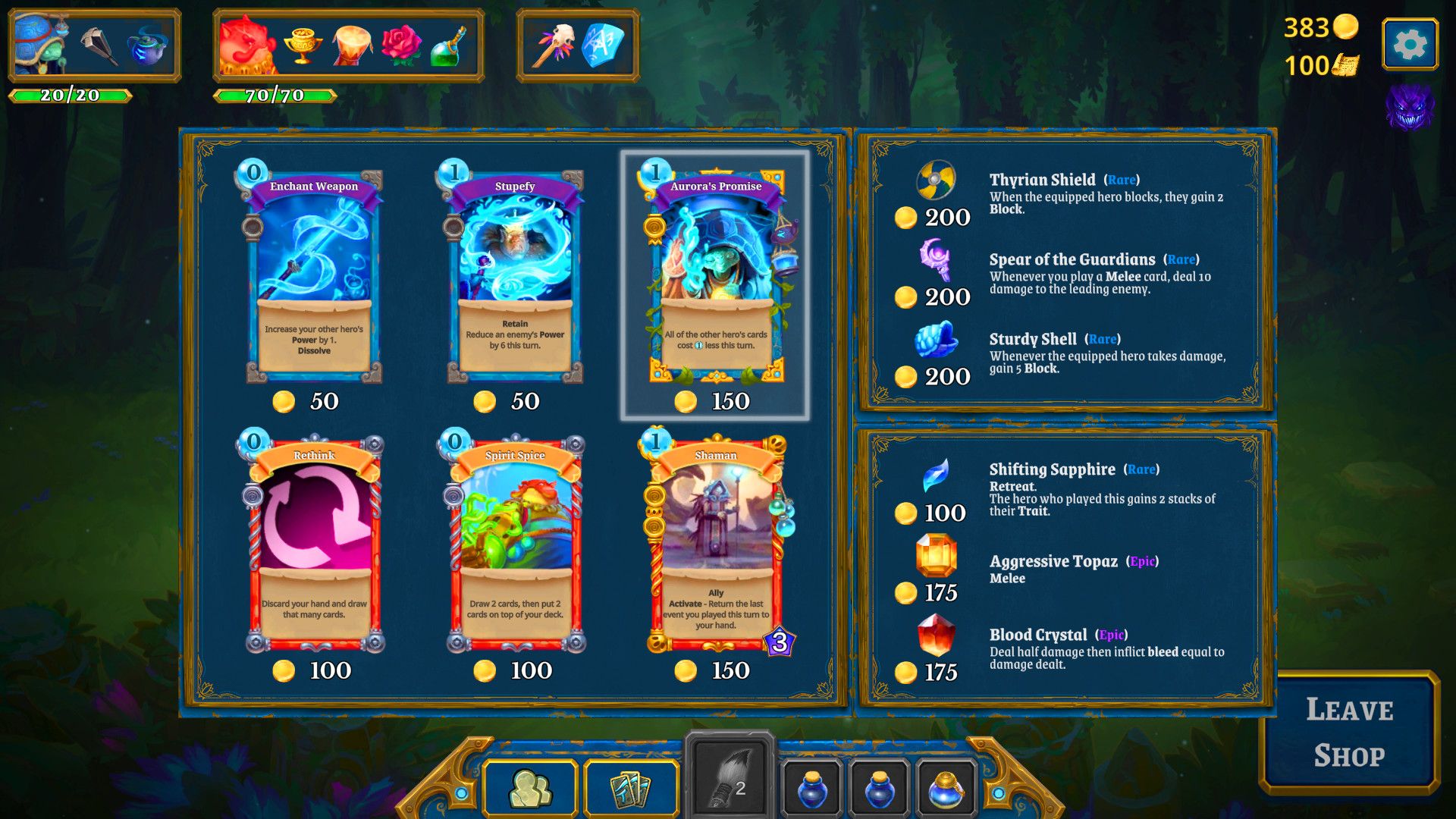
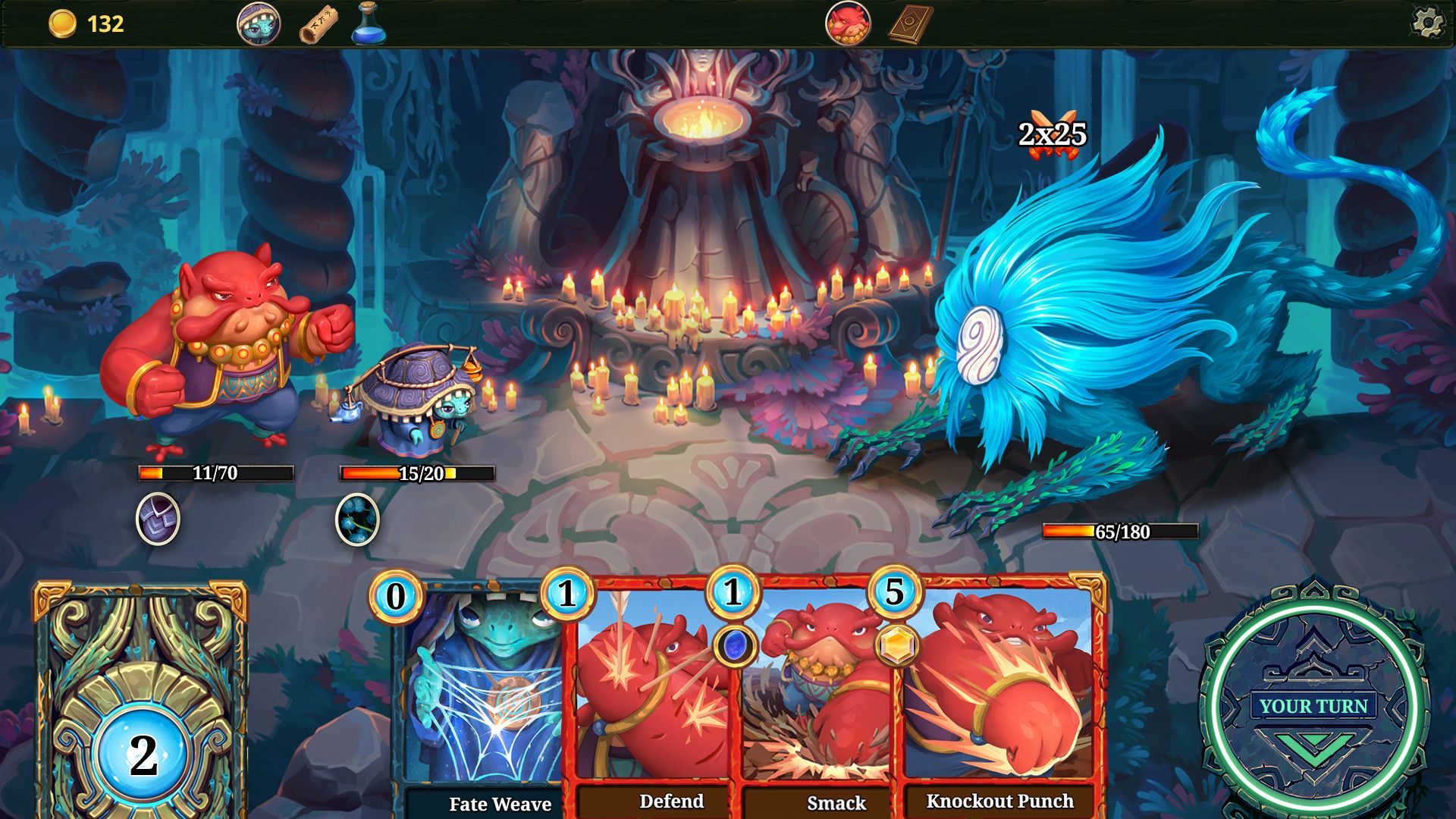
The Bad
The unique aspect of uncovering the map with ink has one major downside: you can’t reveal the whole map, a frustrating aspect for completionists and perfectionists alike. While understandable for game balancing purposes, as well as the discovery process, there is a certain level of disappointment as you progress to the next level with half of the current level unexplored. It just goes against every learned process from playing video games as a medium for the last 25 years.
This next problem is more with the genre of roguelites itself as they require repetition of a single gameplay loop that can run dry on extended sessions of playtime. While it can be beneficial for quick short bursts of game time, for people who only have a limited amount of time to play video games, you can struggle to make any amount of progress. This is exacerbated by the random number generator (RNG) aspect of the card drafting process, which can completely kill a run and waste your time.
TL;DR
- Not good for perfectionists
- RNG dependant
- Repetitive game loop
Final Score: 7/10
Ultimately, Roguebook is a strong contender in the deck building roguelite genre, which puts pressure on Slay the Spire for the top position. The gripes of the gameplay loop are mostly mitigated if you're able to play on your daily commute, or on a lunch break, but are more noticeable when played during extended sessions. However, the strategic elements feel so satisfying when you pull off a successful run and all the loot drops help push your strategic path. Its strong artistic design will catch your eye, while a carefully designed game price will keep you coming back for more.
Thank you for checking out our Roguebook Switch review, thank you to Nacon (via HomeRun PR) for providing the review code and thank you to our $5 and up Patreon Backers for their ongoing support:
For more reading, check out our Nintendo Switch Sports review.
